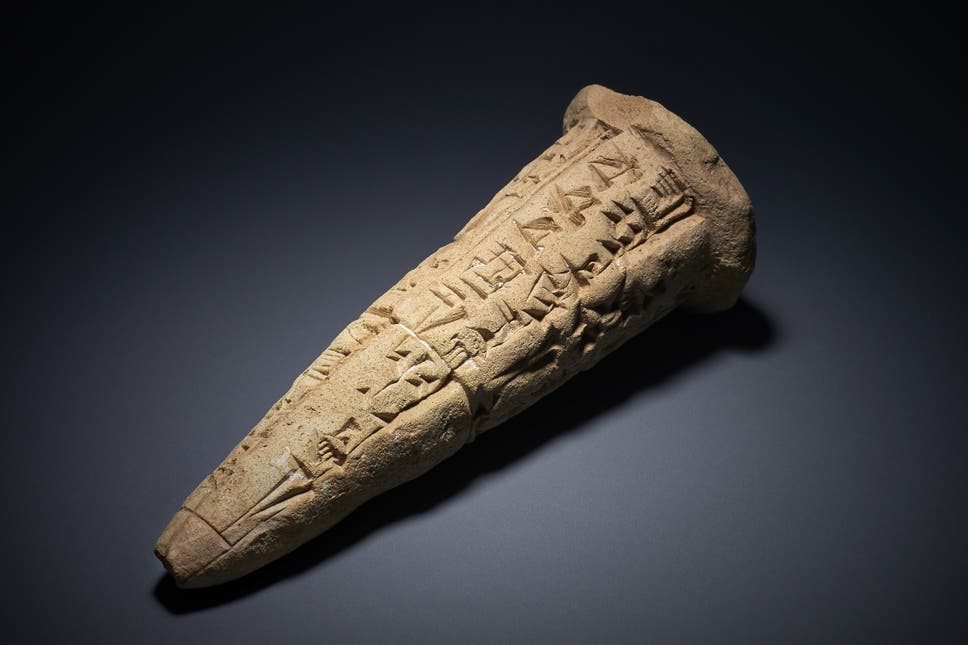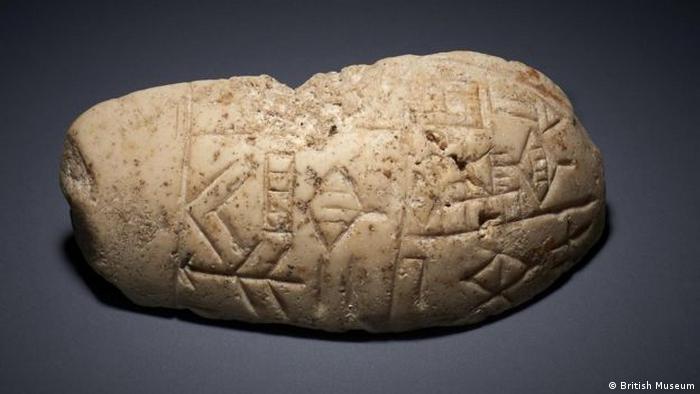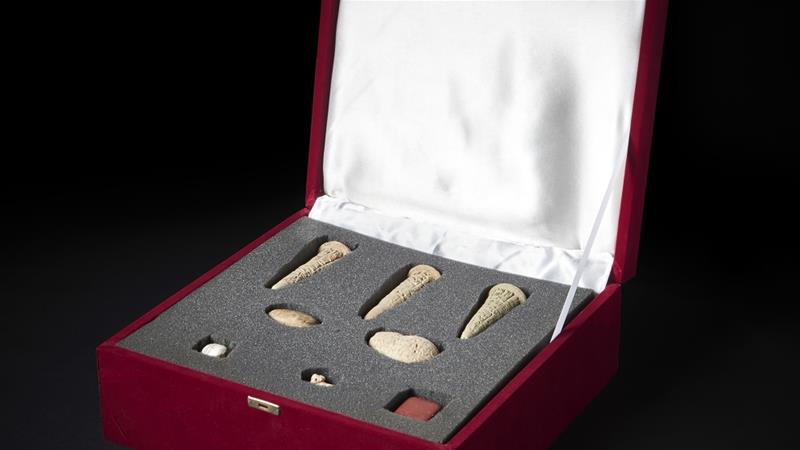



Unidentified art dealer looted a group of ancient artifacts from Iraq. The U.K. repatriated the 5,000-year-old ceramics during a ceremony in London Friday. The objects will be returned to their home country and held in the collection of the national museum in Baghdad.
The Iraqi ambassador to the U.K., Salih Husain Ali, was quoted in The Guardian praising the antiquities experts “for their exceptional efforts in the process of identifying and returning looted antiquities to Iraq.” The ambassador added: “Such collaboration between Iraq and the United Kingdom is vital for the preservation of Iraqi heritage.”
The small conical works were taken during the period of chaos following the fall of Saddam Hussein in 2003, a period of widespread looting of ancient sites throughout the country. And while experts have on some occasions returned stolen items to the country, it is very rare to pinpoint the exact temple where the items once resided—and in this case, the experts were helped out by something of a coincidence. A British Museum archeologist just happened to be leading a team through a temple in Tello, the modern Arabic name for the ancient Sumerian city of Girsu, and noticed that there were holes in the wall, and discarded material that suggested items were looted from the premises.

